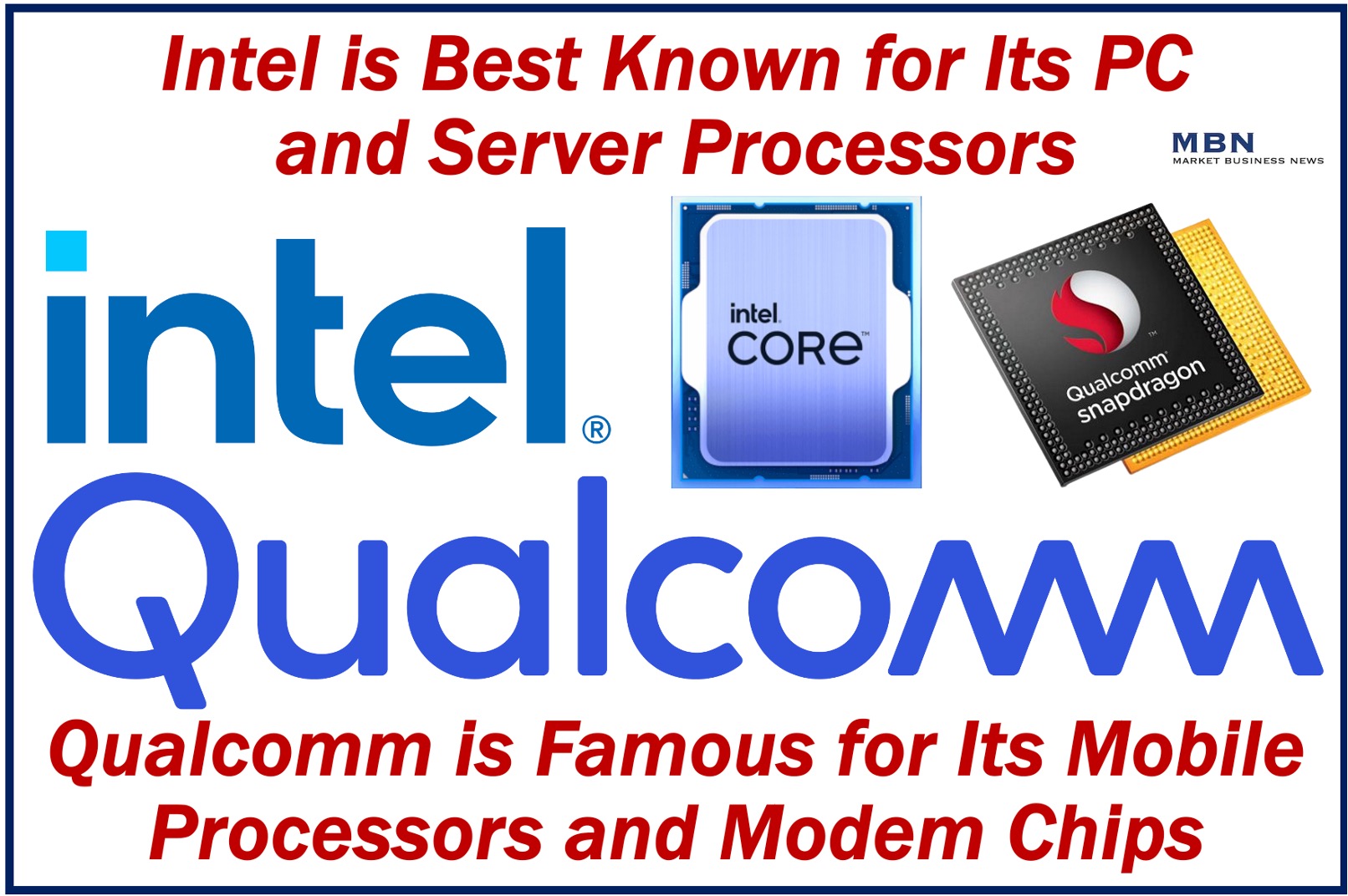In what could be one of the largest acquisitions in tech history, Qualcomm is reportedly exploring the possibility of acquiring Intel. This bold move, if successful, might transform the semiconductor landscape and create new synergies between the two industry giants.
According to sources close to the matter, Qualcomm recently approached Intel with an offer for a “friendly takeover”.
While the specifics are still under wraps, this deal could exceed $100 billion, making it one of the biggest mergers ever seen in the tech world. It’s worth noting that both Qualcomm and Intel have yet to comment on these reports, leaving the market rife with speculation.
Qualcomm is based in San Diego, California, while Intel is headquartered in Santa Clara, California. Both companies are located in the heart of the U.S. tech industry, with Qualcomm known for its mobile and wireless technologies, and Intel for its leadership in semiconductor manufacturing and computer processors.

Qualcomm’s Ambitions
Qualcomm, known primarily for its dominance in mobile chipsets, is looking to diversify its portfolio.
A major goal for Qualcomm is to expand beyond mobile chips and gain a foothold in the PC and server processor markets. A successful acquisition would make Qualcomm a dominant player in both areas, drastically reshaping its market presence.
In a report from PhoneArena, it was noted that Intel’s struggles have opened the door for Qualcomm’s interest.
Once the leading chipmaker globally, Intel has seen its share price drop by more than 50% in 2023 alone, making it a prime target for acquisition. Meanwhile, Qualcomm has been steadily growing, with a stock price increase of over 20% year-to-date.
“Qualcomm has been eyeing Intel for a while,” according to industry insiders quoted by PhoneArena. “This could be the deal that positions Qualcomm as a top player in the broader semiconductor space.”
Challenges Ahead
Despite the potential upside, the road to a Qualcomm-Intel merger is fraught with challenges.
For one, Qualcomm would need to secure substantial financing, as it currently has $13 billion in cash and $13 billion in long-term debt, while Intel’s value, including its debt, exceeds $122 billion.
Furthermore, regulatory scrutiny would likely follow, particularly from antitrust bodies in the United States, Europe, and China. A large-scale deal like this could lead to concerns about competition, especially given the dominance of companies like Nvidia in AI chip production.
As reported by Reuters via Inc.com, Qualcomm’s CEO, Cristiano Amon, has been personally involved in the discussions.
However, no formal offer has been made, and it’s uncertain whether the talks will lead to a finalized deal. “These conversations are still in the early stages,” one source told Reuters, underscoring the tentative nature of the negotiations.
Intel’s Strategic Challenges
For Intel, the timing of Qualcomm’s approach is significant. The company is undergoing its most challenging period in decades.
Under CEO Pat Gelsinger, Intel has been working on a turnaround plan that includes spinning off its foundry business into a separate subsidiary and striking deals with companies like Amazon Web Services for custom AI chips, says CNBC.
While Intel has taken steps to address its issues, the company’s market value has plummeted, leaving it vulnerable.
“Intel has been on a downward trend for years, losing ground to competitors like Nvidia and AMD in key areas like AI and manufacturing,” according to BNN Bloomberg.
However, the company’s foundry operations, backed by U.S. government investments, could prove attractive to Qualcomm, which currently relies on third-party manufacturers for its chips.
What’s Next?
A Qualcomm-Intel merger, if it happens, could reshape the future of the tech industry.
By combining their strengths, the two companies could present a formidable challenge to Nvidia’s dominance in AI chips and AMD’s rise in PC processors.
According to Yahoo Finance, Qualcomm’s move could even be seen as a strategic play to “box Nvidia out of the AI market” by leveraging both Intel’s server capabilities and Qualcomm’s expertise in mobile computing.
However, it’s far from a done deal. The complexity of the acquisition, combined with regulatory hurdles and the financial burden it would place on Qualcomm, means that any potential merger is likely to take time.
For now, the tech world watches and waits, eager to see how this potential mega-deal plays out.
